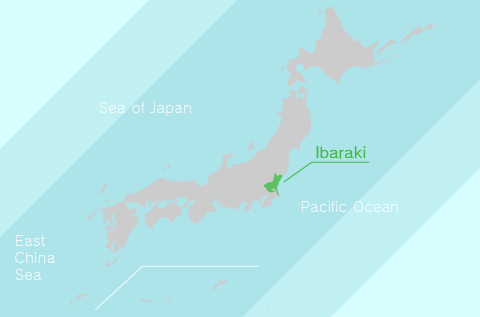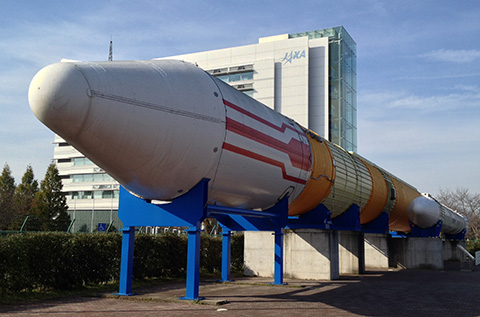What is Japan like?
About Ibaraki Prefecture

The Location of Ibaraki Prefecture
Ibaraki Prefecture is located in the northeastern part of the Kanto region, with the Pacific Ocean to its east. Mountains stretch along its northern and northwestern areas, while plains dominate the central to southwestern parts of the prefecture. Numerous rivers flow from the mountain ranges, including the Tone River, which runs eastward along the southern edge of the prefecture before emptying into the Pacific Ocean.
Although Ibaraki ranks 24th in land area among Japan's prefectures, its flat terrain gives it the fourth-largest habitable area nationwide. The prefecture is known for its agricultural produce, particularly chestnuts, and also cultivates a wide variety of crops such as Chinese cabbage, lettuce, bell peppers, lotus root, and melons.
In Tsukuba City, the presence of institutions like Tsukuba University and numerous national research organizations has made the area a hub for cutting-edge scientific research in fields like space exploration and biotechnology.

Tsukuba Space Center, a hub for Japan's space exploration and technology
Like other prefectures, Ibaraki faces challenges from a declining birthrate and an aging population, leading to labor shortages. The number of foreign workers in the prefecture is around 40,000, ranking 11th nationwide. The majority come from Vietnam, China, the Philippines, and Brazil. Approximately 40% of foreign workers are employed in manufacturing, while others work in agriculture and forestry, service industries, wholesale and retail, as well as education and learning support.
In terms of residency status, over 30% hold visas based on familial or personal ties, making this the largest group. This is followed by technical interns, who account for about 30%, and those with specialized or technical residency status, comprising slightly under 20%. Foreign workers are playing an increasingly important role in addressing the labor needs across various industries in Ibaraki Prefecture.

